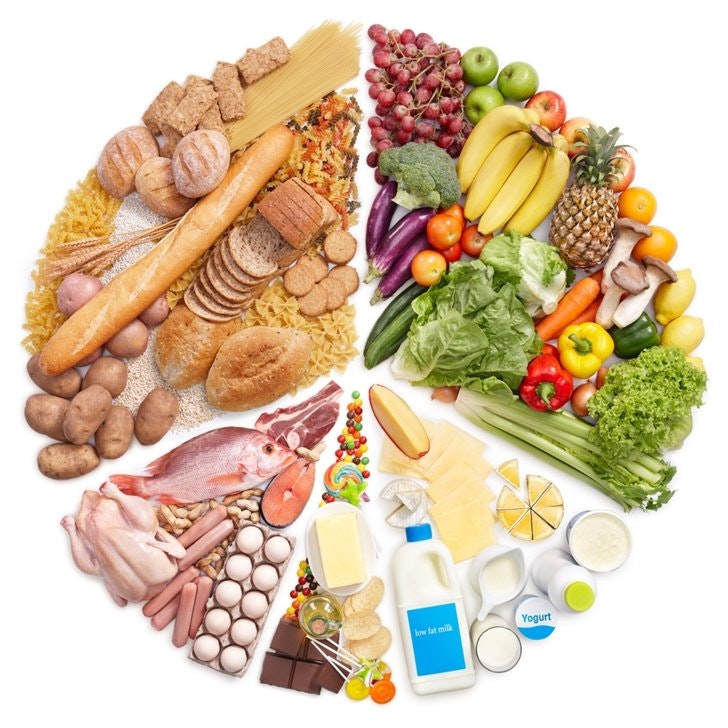Maintaining a balanced diet in today's fast-paced and convenience-driven society can be a daunting challenge. The importance of a well-balanced diet is not to be underestimated. A balanced diet is the basis of good health. It supports the body's vital function, enhances mental clarity and prevents chronic diseases. In order to understand why a healthy diet plan service is so important, we must examine the importance of different nutrients, the effects of nutritional imbalances, as well as practical methods of achieving dietary balance.
A balanced diet provides the body with the nutrients that it needs to perform at its peak. These nutrients include macro nutrients--carbohydrates, proteins, and fats--and micro nutrients--vitamins and minerals. Carbohydrates are the body's primary source of energy. They are commonly misunderstood. They are essential for energy in the brain, heart, and central nervous system. Complex carbohydrates such as fruits, vegetables, whole grains and whole grains will ensure that you are always fueled up while keeping your blood sugar levels stable. Proteins are the building blocks of your body and they are essential for tissue repair, growth, and maintenance. Proteins are essential for hormone production, enzyme activity and immune function. Lean meats, dairy products and legumes are good sources of protein. Also, legumes and nuts are good sources. Fats are essential for energy storage, protecting organs, and absorption of fat-soluble vitamins D, E, and K. Avocados, olive oil, and nuts contain healthy fats which support metabolic processes and maintain cell integrity. These vitamins and minerals are vital for many bodily functions, including immune support and bone health. Vitamin C and calcium are important for the immune system, while vitamin D is essential for bone health. A varied diet, which includes vegetables, fruits and lean proteins is a good source of vitamins and minerals.
Unbalanced diets can lead to a number of health issues. Both over nutrition and under nutrition have serious consequences. Deficit of essential nutrients may lead to various health problems. Lack of vitamin C can cause scurvy, while inadequate iron intake may lead to anemia. Chronic under nutrition can weaken the immune system, impair cognitive function and stunt physical growth. Overeating nutrients, particularly sugars and fats can lead to obesity, diabetes type 2 and cardiovascular disease. Modern diets, which are high in calories and low in nutrients, can lead to over-nutrition. Dietary imbalances can have severe consequences on health and well being.
A balanced diet offers many benefits that go beyond the physical. A growing body of evidence indicates that nutrition can have a profound impact on cognition and mental health. Fish, which is rich in omega-3 fatty acids, has been linked to improved brain function and mood regulation. Diets high in sugar, processed foods and refined grains are associated with an increased risk for anxiety and depression. Antioxidants and vitamins protect the brain from oxidative stresses, inflammation, and other diseases linked to cognitive decline. These nutrients support memory, concentration, and cognitive function. This connection between nutrition, mental health and overall well being is a good example of how nutrition can have a holistic impact on our well-being.
You need to be informed, plan and make regular choices if you want to maintain and achieve a healthy diet. To get all the nutrients that you need, it is important to consume a variety of foods. Fill your plate up with colorful fruits and vegetables, lean proteins, whole grains, and healthy fats. Even healthy foods, if eaten in excess, can cause weight gain. Be aware of your portion sizes and listen to your body. Processed food is high in sugar, salt and unhealthy fats. Choose whole, unprocessed foods whenever possible. Staying hydrated is essential for nearly every bodily function, including digestion and absorption of nutrition. You should drink at least eight glasses of water a day. If you are physically active, this number can be increased. Plan your meals ahead of time to avoid unhealthy fast food and snacks. Keep healthy snacks on hand and prepare meals in advance. You can indulge in sweets, but in moderation. Maintaining a healthy diet is essential.
A balanced diet is not only beneficial to the individual, but it also benefits society and the environment. A balanced diet reduces the cost of healthcare for both individuals and society by promoting health and preventing chronic disease. Reduced meat consumption and diets that are based on plant-based food can reduce the environmental impact. The reduction of greenhouse gas emissions and conservation of water are all part of this. A balanced diet has many societal and ecological benefits, which further emphasize its importance.
Balanced nutrition is essential for good health. It is vital for optimal body function. It is also good for mental health, and it reduces the risk of chronic diseases. It can be challenging to maintain a balanced, healthy diet in today's fast-paced world. By understanding the importance and using practical strategies to achieve a healthy, balanced diet, you can lead a happier life. A balanced diet has many benefits that go beyond an individual's well-being. It also contributes to sustainability and social well-being. Making informed food choices and prioritizing balanced nutrition diet are the first steps to a healthier lifestyle for all.
Rich Inserts
https://www.richinserts.com/





Comments